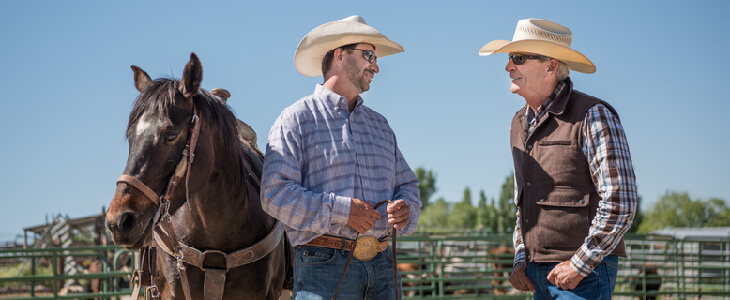Horse leasing is common in the equine community, and it can provide benefits both to lessees and lessors. For a horse lessee, leasing is often a more affordable choice than purchasing and caring for a horse. In addition, leasing can allow a lessee to “test run” horse ownership without having to make a long-term commitment. And for a lessor, leasing a horse can help offset the costs that accompany horse ownership. In this article, we take a look at equine leasing contracts.
The Leasing Process
A lease is a legally binding contract. Therefore, all parties to an equine lease should take the process seriously. Prior to signing a lease, it is important for both parties to do their research. In addition, it is imperative for the party leasing a horse to ensure that the animal meets his or her riding goals and abilities. In addition, when meeting a horse owner, a lessee should inquire about the horse’s history and temperament. It can also be useful for the lessee to review copies of the horse’s medical records. Prior to signing an equine lease, it is acceptable for a lessee to have a veterinarian conduct an examination of the horse. Finally, a lessee should always take the horse on a test ride prior to signing a lease.
Horse Lease Agreement Types
As is the case with other types of property leases, there are a variety of equine lease agreements to choose from. The two most common equine leasing agreements are as follows:
Full lease agreement: A full lease gives a lessee the most control over the horse after the lease is executed. A lessee who signs a full lease is responsible for paying for the horse’s expenses, such as boarding, food, and vet bills. In addition, this type of lease sometimes includes a lease fee, which is calculated based on the horse’s overall value. A full lease typically grants the lessee the sole ability to ride the horse, and it usually allows the lessee to ride it without restrictions.
Partial lease agreement: A partial lease, which is sometimes called a half lease, allows a lessee to ride a horse on a specified number of days each week. The number of days varies by agreement, and this usually affects the monthly payment amount. A lessee who enters a partial lease often must share the horse with other riders or the owner. In addition, the lessee may be required to pay for a percentage of boarding and vet costs. This type of lease is often a good option for someone who has never owned or leased a horse before.
Contact a Wellington Equine Law Lawyer
If you are interested in executing a horse lease, Gueronniere, P.A., is here to help. At Gueronniere, P.A., our knowledgeable equine law lawyer will guide you through the leasing process, ensuring that your equine leasing contract is legally enforceable and well-drafted. Please contact us to arrange an initial consultation with our talented Florida equine law lawyer.
